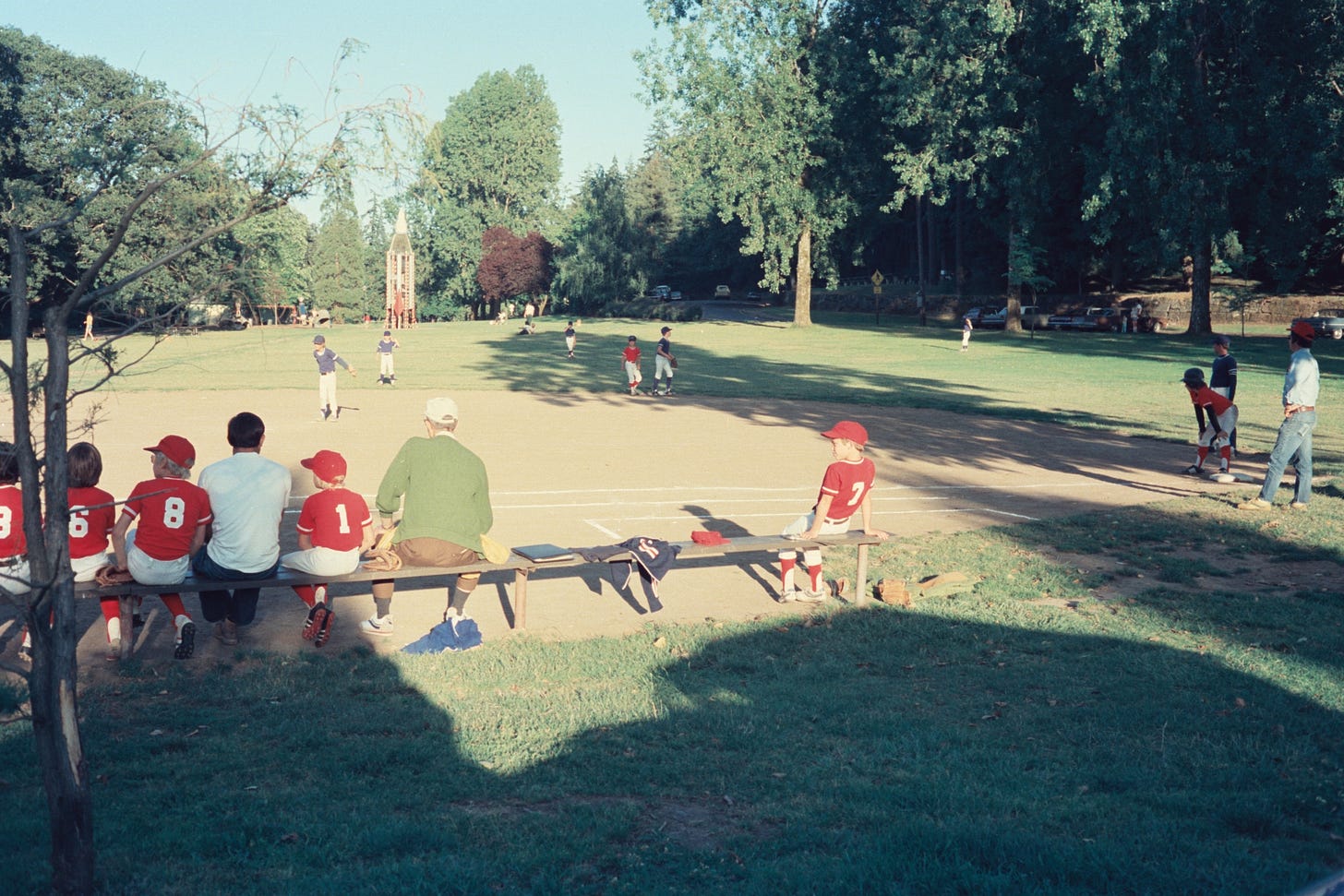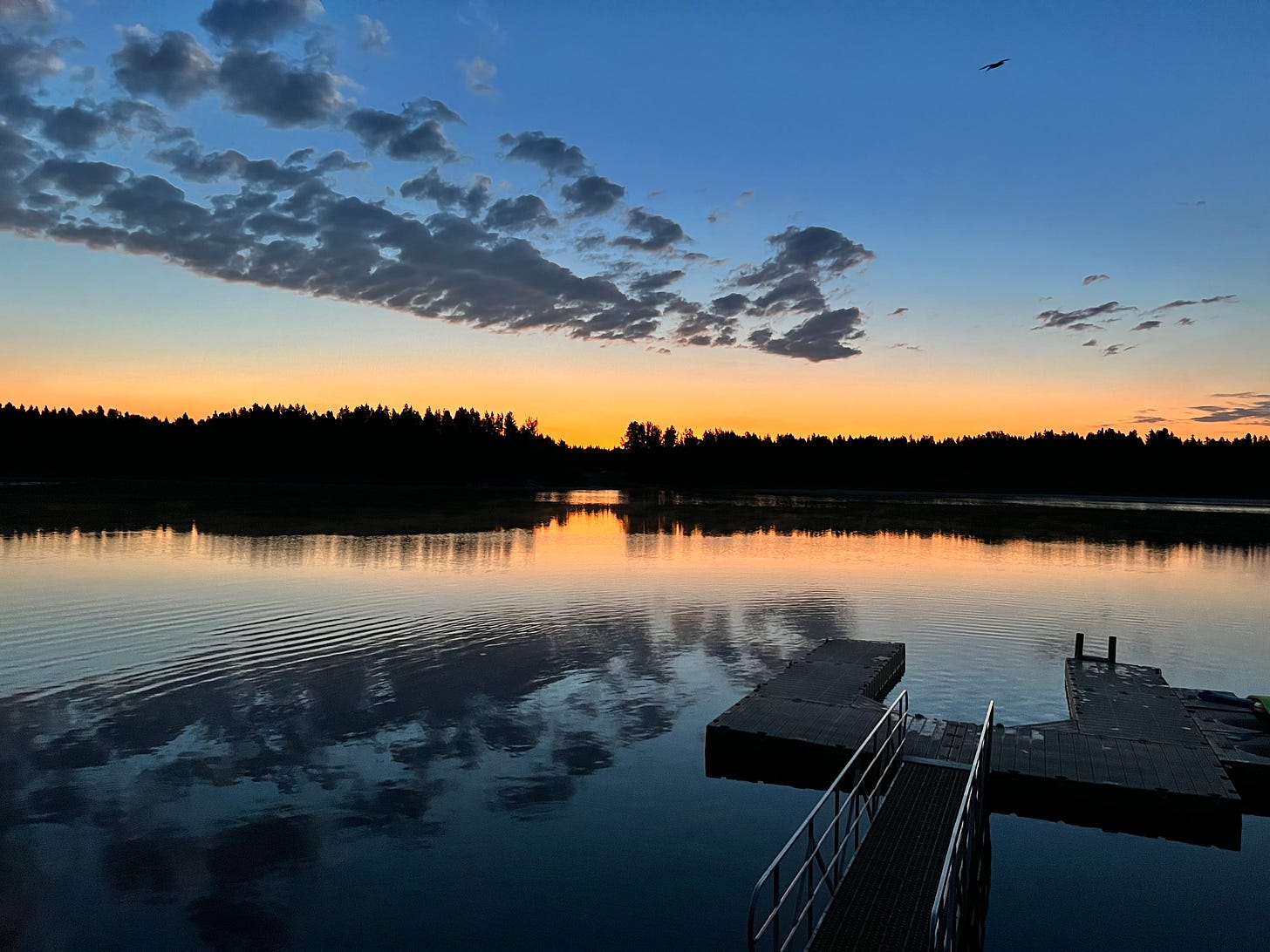"That I might not shrink—"
Let me show you how. Let me help you. I know what you’re going through.
One of the most embarrassing moments from my childhood was the time I wet my pants during a Little League baseball game. I still remember where that game was played. I can’t remember if the coach wouldn’t let me go (he wasn’t the nurturing kind; more of the “tough it up punk and don’t even think about crying” type). But maybe I didn’t even ask him if I could? I think I was a substitute right-fielder. Did I even like playing baseball? I don’t remember. But I do remember that moment when I couldn’t hold it any longer and sure enough, wet myself as I sat on the bench. The moment of reckoning wasn’t long in coming. Our uniforms consisted of a white jersey with red sleeves and white pants. Not optimal when you are trying to hide the fact that you peed your pants. When it came time to go back on the field, I tried every way I could think of to avoid standing up, but coach wasn’t having it. I slowly stood and it wasn’t hard to see what had happened. The wet spot on the bench shouted the damning secret. My team laughed at me. The coach laughed at me. And I wanted desperately to disappear.
Although this happened more than forty years ago, I still remember random details of that summer’s evening. There was a small cluster of pine trees just past where the first base boundary line terminated. The field where we were playing was behind and to the west of River Road Elementary, so as the sun was setting, long shadows stretched across the field. The backstop was standard issue chain link fence. The wooden bleachers were sun worn and gray. As I stood out in right field, wet and ashamed and wishing I could just start running for home and not stop, in my still-little-boy mind I wondered how people could be so viciously cruel?
In the Doctrine and Covenants, a collection of revelations given to Joseph Smith the Prophet and others, there is a unique passage unlike any other found in scripture. It is the Savior’s only recorded first-person account of what He experienced while in the Garden of Gethsemane. In speaking of suffering for the sins of all who ever had or ever would live, He recalled,
“For behold, I, God, have suffered these things for all, that they might not suffer if they would repent; But if they would not repent they must suffer even as I; Which suffering caused myself, even God, the greatest of all, to tremble because of pain, and to bleed at every pore, and to suffer both body and spirit—and would that I might not drink the bitter cup, and shrink—“ (Doctrine & Covenants 19:16-19).
Here, in His own words, Jesus describes that awful moment when He felt every sin and sorrow and injustice we would ever experience. Elsewhere we learn He also experienced our pains, sicknesses, fears, and mistakes. He felt it all. In a way we can’t begin to understand, all of the evil and heartbreak and brutality of this world was somehow metabolized by a single person. I can’t comprehend this. Can anyone?
There is also something important in the use of that dash after “and shrink—” The late Latter-day Saint scholar and author Eugene England once wrote about this in his essay The Power of Mercy in the At-one-ment:
“At that point, it appears to me, Christ actually breaks off his sentence without completing it, literally shrinks, as if the remembered and relived pain is too great. And that is, for me, the precise point where the central act of the At-one-ment occurs, where I am moved most fully to experience at-one-ment with Christ and rejoice with him as he then goes on to say ‘Nevertheless, glory be to the Father, and I partook and finished my preparations unto the children of men.’ (D&C 19:15-19, emphasis added.) There I can feel directly the power of his mercy to move me to repentance.” The Quality of Mercy
In that easy-to-overlook dash is the answer to my sad-little-boy heartache about the cruelty of others. It is Christ’s answer to the endless crushing waves of war, mistreatment, pain, grief, and violence. In absorbing all that humankind ever had or ever would suffer, Jesus did not shrink. He faced it all and didn’t break. He felt it all in order to ameliorate all that we would ever feel. He suffered that we might not suffer. In spite of unimaginable agony, He endured this moment, a moment so traumatic that recalling it over a thousand years later was still tender for Him.
I admit that I am an ongoing contributor to Christ’s burden. I am part of the reason He would be called “a man of sorrows, and acquainted with grief.” (Isaiah 53) As hard as it is to think of Him suffering for my sins, it is equally painful to reflect on how slow I am to yield myself fully to Him. How many times must He beckon to me to come before I yield? How can He not be disappointed in my shrinking, in my selfishness, in my seemingly endless supply of excuses? But if I dare to ask what He thinks of me, the answers don’t change. Let me show you how. Let me help you. I know what you’re going through. I can help you carry it. I love you so.
I long ago moved past my moment of wrenching shame in right field. But I’m still faced with many situations where I must choose whether to shrink or to stand. If I choose to include the Savior, I need not ever stand alone. His grace is sufficient.
Next week, learn why this photograph represents one of the most meaningful spiritual experiences I’ve had in quite awhile, and whether or not I kept it—always the hardest part.






